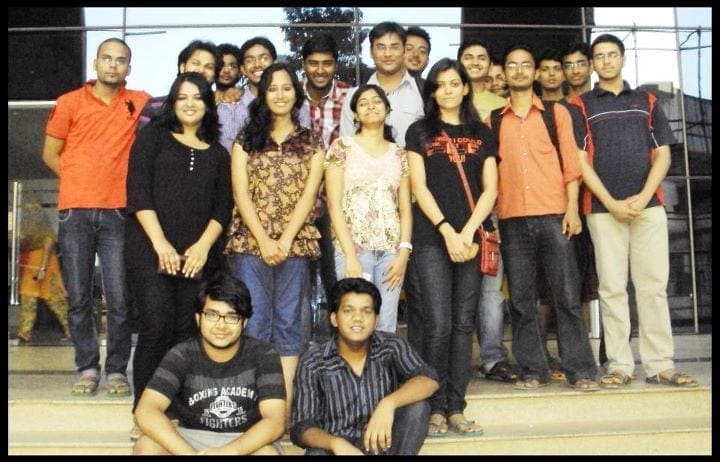
Introduction to senior management
A senior management team is an efficient team of top-level employees who collaborate to manage an organization. This collective, overseen by the Chief Executive Officer (CEO), constitutes the apex of a company’s internal management arrangement, offering strategic oversight. Senior management encompasses distinct roles responsible for supervising multiple business undertakings.
Senior management functions include understanding the business model and strategy, risk management, and financial analysis. These are crucial elements for any successful business. To thrive, a company needs the right management team to support, build, and maintain growth.
Companies consistently seek individuals with advanced leadership skills. Aspiring senior executives require a comprehensive understanding of leadership and management competencies. Many possess leadership abilities; however, only a select few execute them effectively. This distinction defines a leader versus a senior management executive. Without the right management team, a company is more susceptible to making amateurish mistakes.
Finding the right mix of management is vital. It depends on the company’s culture. Some companies prefer to hire management with the right skills, while others prioritize the right personality. Neither approach is wrong, but the choice requires careful consideration.
The essential role of senior management
The senior management team performs several crucial functions within a business. These roles are pivotal in steering the company towards its objectives. The primary responsibilities include:
- Devising an Appropriate Strategy: Senior management is responsible for formulating a strategic plan that aligns with the company’s vision and mission. They ensure this strategy is comprehensive, realistic, and adaptable to changing market conditions. The strategy must encompass short-term and long-term goals and be communicated clearly across all levels of the organization.
- Ensuring Effective Implementation: Once the strategy is devised, senior management oversees its execution. This involves setting timelines, allocating resources, and monitoring progress. They must ensure that all departments understand their roles and responsibilities in achieving strategic objectives.
- Setting Ambitious yet Achievable Goals: Senior management sets high but attainable goals to drive the company forward. By setting such goals, they motivate teams to perform at their best, fostering a culture of excellence and continuous improvement.
- Managing Teams: Effective team management is crucial. Senior management must lead by example, providing guidance, support, and motivation. They must also ensure that teams have the necessary skills, tools, and resources to achieve their goals. This involves ongoing training, development, and performance management.

- Coordinating Functional Departments: Senior management ensures seamless coordination between functional departments such as finance, human resources, marketing, and operations. This coordination is vital for efficient workflow and achieving organizational objectives. It involves regular meetings, clear communication channels, and integrated planning processes.
- Organising Resource Management: Senior management is responsible for the optimal allocation and utilization of resources within the firm. This includes financial resources, human capital, and technological assets. Efficient resource management ensures the company operates within budget while maximizing productivity and profitability.
- Managing Stakeholder Demands: Senior management addresses the needs and expectations of stakeholders, including shareholders, employees, customers, and suppliers. They must balance these demands while safeguarding the company’s interests. This involves regular communication, transparency, and accountability through the board of directors.
Creating an effective senior management team is imperative for any organization, whether multinational or startup. The exemplary leadership can enable companies to thrive and achieve remarkable success. Senior managers fulfill multifaceted roles that extend beyond daily operations. They are instrumental in shaping organizational strategy, nurturing talent, ensuring goal alignment, and managing financial resources.
Their leadership and decision-making skills are vital for steering organizations toward long-term objectives and sustaining competitive advantages in dynamic markets. Influential senior leaders drive aggressive business growth through their strategic vision, which fosters creativity and flexibility. They cultivate an excellent work environment and empower teams to reach their objectives.
How do you accelerate your senior management career?
While advancing as a senior manager can be a fulfilling path, it may also lead directly to directorial roles. A distinguished course like the Senior Management Programme IIM can empower mid-senior executives to evolve into forward-thinking leaders. This high-impact program is designed to facilitate the transition to strategic thinking and effective analytical outcomes.
Participants will gain in-depth knowledge of managing valuable supply chains and implementing risk management strategies. The program focuses on fostering sustainable business growth and enhancing leadership capabilities in today’s dynamic landscape.
These intensive courses provide real-world assignments and case studies. Participants benefit from mentorship by esteemed educators, expanding their professional networks beyond conventional limits. Additionally, these programs improve leadership skills and adaptability, equipping candidates with the latest strategies in digital transformation, finance, and strategic decision-making.
Key areas of focus include:
- Financial decision-making
- Human capital management
- Fundamental economics
- Organizational leadership
- Change management
- Strategic thinking
- Customer and brand dynamics
- Corporate sustainability
- Leadership in the digital age
- Negotiation and conflict resolution
Conclusion
Senior management plays a crucial role in navigating challenges and capitalizing on opportunities. By applying sound judgment and encouraging confidence, they guide the organization toward success. Their ability to align goals, resources, and actions provides a clear pathway to achievement.
In today’s rapidly changing market, strong leadership is essential for maintaining a competitive edge. Senior management’s influence shapes the company’s future and solidifies its position as a leader in the industry. Their commitment to growth, performance excellence, and resilience ensures ongoing success.
The career-vetted Senior Management Programme is specially curated for experienced professionals with eight to ten years of experience. It is ideal for mid-senior-level managers, functional heads, directors, VPs, seasoned entrepreneurs, and leaders from both the government and non-profit sectors. Engaging in such programs not only enhances one’s qualifications but also prepares executives for the challenges of modern leadership. This comprehensive approach ensures participants are well-equipped to navigate the complexities of their roles.




Be the first to comment